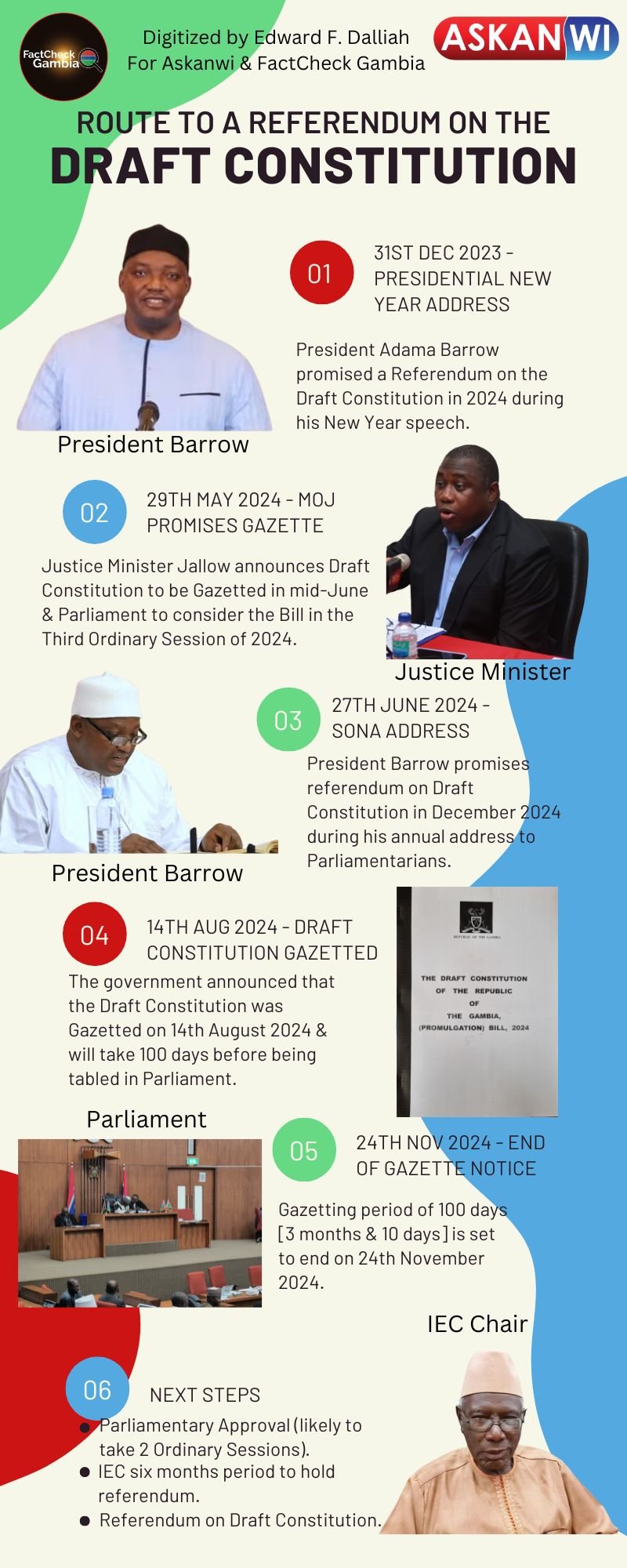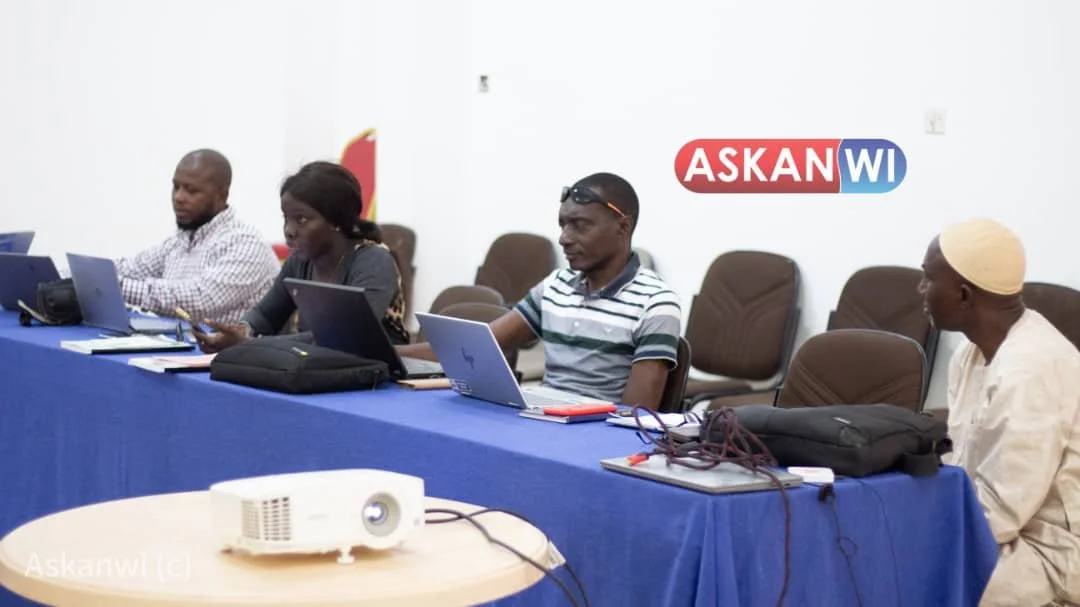Gambian Civil Society Leaders Chart Plan for Constitution Building
CSO Leaders at TANGO Constitution Building Meeting © Askanwi
By Yusef Taylor
Leaders from various Non-Governmental Organisations and civil society organisations meet today 29th October 2024 to chart a way forward towards the Gambia’s Constitution Building Process at the Headquarters of The Association of Non-Governmental Organisations (TANGO).
Attended by various stakeholders from the Civil Society and NGO space, leaders agreed to collaborate towards a unified position paper that could be advocated as a united front in the Constitution Building process.
The 2024 Draft Constitution was Gazetted on 14th August 2024 and will take 100 days before being tabled in Parliament. According to our estimates, the 3 months and 10 days Gazette period should conclude on 24th November 2024. At that point, Parliament is expected to be on its final Fourth Ordinary Session of the 2024 Legislative Year.
Askanwi Infographic © Askanwi
If Parliament were to pass the 2024 Draft Constitution through its Second Reading it is anticipated that civil society will have an opportunity to submit their Position Paper to a Parliamentary Committee which could form part of the recommendations to improve the 2024 Draft Constitution.
During todays meeting, Civil Society drafted a plan to compile their recommendations on the Constitution, with a possible validation of their final document which if agreed upon could be adopted as a unified Position Paper on the Draft Constitution for the consideration of Parliament.
Credit Afrobarometer Survey 24th August 2024
In September 2020, the Draft Constitution failed in dramatic style during the Second Reading as members aligned to President Adama Barrow voted against the 2020 Draft which was widely popular amongst Gambians. According to an Afrobarometer Survey released on 23rd August 2024, 71% of Gambians want a new Constitution and 67% strongly disagree with the National Assembly for rejecting the 2020 Draft Constitution. On the other hand, only 29% believe that the National Assembly was right to reject the 2020 Draft Constitution.
Credit Afrobarometer Survey 24th August 2024
The next stage will see the 2024 Draft Constitution tabled in Parliament for its First Reading which is just a formality, followed by the Second Reading when at least “three quarters of all the members of the National Assembly” shall vote in favor of the Bill according to provision 226 of the 1997 Constitution.
CSO Leaders at TANGO Constitution Building Meeting © Askanwi





